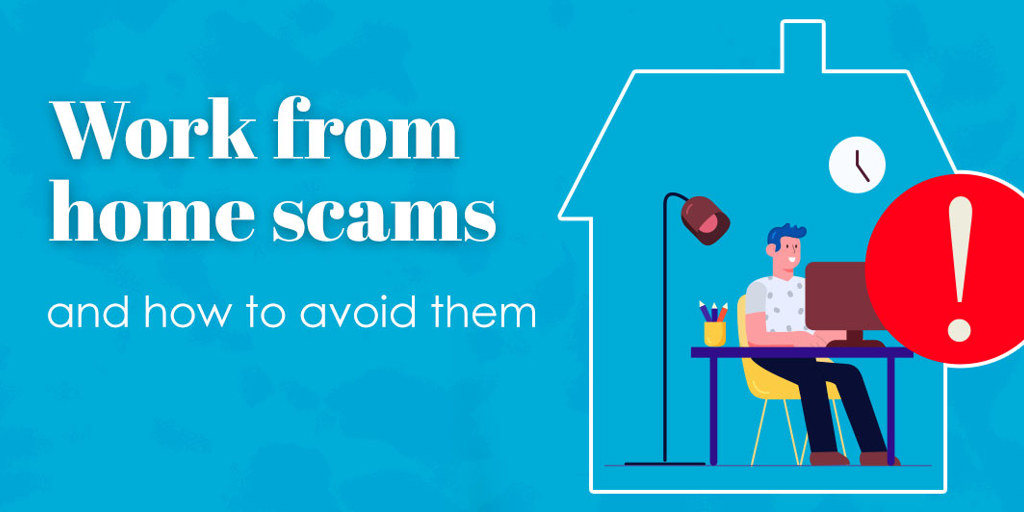


Work-from-home scams and how to avoid them
As the coronavirus crisis causes unemployment numbers to increase, a trend has emerged: Many people are falling victim to work-from-home scams.
Identifying these scams can be tricky, as work-from-home opportunities have skyrocketed due to nationwide stay-at-home orders.
Here’s how it works: The scam typically begins with an enticing online job posting, promising that you’ll earn thousands of dollars without ever leaving the comfort of your home. 

Then a “recruiter” contacts you with an offer: perhaps to work as a purchaser, envelope stuffer or mystery shopper. But dubiously, you’ll be expected to pay—for supplies you’ll never use, training and services you’ll never receive, or even illegitimate taxes and fees.
The unfortunate reality is that these offers, especially the unsolicited ones, are actually scams. So do your due diligence and research the company, and anyone associated with it, thoroughly.
Carefully watch for the following:
- The website is incomplete or contains vague information.
- The individual, or company, is not based in the US.
- You cannot contact someone on a US-based landline, or via telephone at all.
- You're asked to pay any amount of money up front.
- You're told that you will need to provide your bank account or credit card information, or open a new bank account for direct deposit and payment for supplies.
Ray Wills is the security officer at F&M Trust
Recent Articles
Join our e-newsletter
Sign up for our e-newsletter to get new content each month.






















